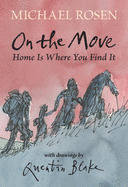 Yesterday's hour-long conversation about bookselling and free speech, organized by the eight regional booksellers associations and moderated by Jonathan Friedman, director of education at PEN America, drew nearly 200 viewers. It was, as some participants put it, a respectful, thoughtful discussion of what the organizers called "a complicated issue." That issue is the tension between the book world's traditional support of free expression and the First Amendment, and an interpretation of those principles that aims to limit hate speech and conduct and not support in any way people or organizations who profit from or spread hate speech and conduct.
Yesterday's hour-long conversation about bookselling and free speech, organized by the eight regional booksellers associations and moderated by Jonathan Friedman, director of education at PEN America, drew nearly 200 viewers. It was, as some participants put it, a respectful, thoughtful discussion of what the organizers called "a complicated issue." That issue is the tension between the book world's traditional support of free expression and the First Amendment, and an interpretation of those principles that aims to limit hate speech and conduct and not support in any way people or organizations who profit from or spread hate speech and conduct.
In introductory remarks, Friedman noted that PEN America, an organization of writers, focuses on "defending the rights that make creative and literary expression possible," both in the U.S. and internationally. PEN America sees free expression "not just as something protected by the First Amendment but as a fundamental human right, universal and inalienable," he continued. The organization defends writers, publishers and booksellers at risk around the world, but also fights hate, "mendacious publication and lies and bigotry of all kinds." As such, PEN America opposes "a false dichotomy between free expression on the one hand and values of diversity and inclusion or anti-racism on the other. In other words, we see that it is possible and essential to do both.... We cannot fight hate without free speech. There is no social progress without free speech," especially with the current wave of threats to free speech around the country, particularly involving school libraries and books taught in schools.
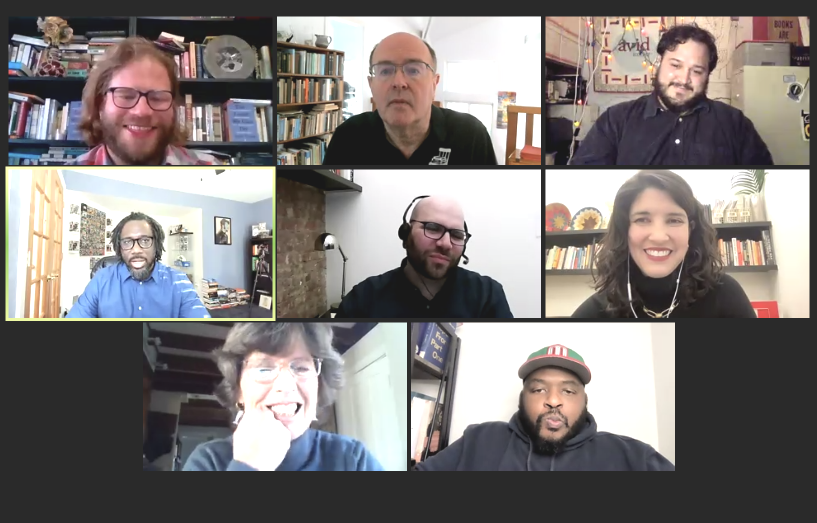 |
|
Clockwise from top left: Josh Cook, Kenny Brechner, Luis Correa, Summer Lopez, Kiese Laymon, Vicky Titcomb, Derrick Young. Center: Jonathan Friedman
|
Kenny Brechner, owner of DDG Booksellers, Farmington, Maine, whose resignation from the ABA board over its diminished support for free expression brought the topic to the fore in the past month, likened free expression to "an inclusive buffet in which all the edible foods of the world are on offer, at least all the First Amendment-protected foods. In exchange for not being able to limit or restrict what goes into the buffet, we have the freedom to pick and choose what we contribute or take from it as well as the freedom to avoid or criticize those foods we consider harmful or distasteful."
He called free expression "a tool for defending personal liberty whose operation is impersonal and apolitical. It therefore protects our freedom as booksellers and readers to engage in the personal, in morality and political sentiment, in creative and aesthetic expression. Censorship is the reverse of this. It happens when the personal is enforced on the general, when a particular moral or political viewpoint is imposed on others."
He said that in conversations about free expression in the last year, he has emphasized that the political pendulum swings back and forth, and "the progressive rejection of free speech by the bookselling community would be a grave mistake," noting "an avalanche of conservative and foreign book bans and challenges directed at school boards and libraries around the country. These challenges have been directed at books whose handling of themes of gender identity and sex and critical race theory are ones many of us treasure." There has "never been a less opportune time to step back from a support of free expression," he emphasized.
He added that freedom of expression has, from the beginning, been "rooted in protecting the speech of the oppressed and the critics of power," including, in U.S. history, abolitionists, the suffrage movement, pacificism and the civil rights movement. Some "90% of free expression has been to protect the oppressed."
Brechner noted that harm is a crux of the current conflict about free expression, saying, "You can't address harm by avoidance or apologizing or appeasing or bullying or suppressing your way to safety. Harm is best addressed by reading, by conversations, by dialogue, by criticism, by the operation of free speech.... If we don't tolerate what we find offensive, nobody is free."
Josh Cook, a bookseller at Porter Square Books, Cambridge, Mass., and author of The Least We Can Do: White Supremacy, Free Speech, & Independent Bookstores, said the idea of free expression means "as many people as possible can be their true selves without fear. The focus of this group of people would be on people writing their truth and being able to read other people writing their truths." As a bookseller, he said, his "primary relationship with free expression is being focused on using my platform and my advocacy to raise up those groups that have been and are being marginalized, and to make heard those voices that have or are being silenced or ignored."
The challenge, he continued, is "how to bring about that for the most people possible and specifically what do we do about expressions that put other people in danger, make them unsafe, or make them afraid to express their true truths."
Cook said he defined harm as "enabling racist policies, enabling transphobic policies, enabling either by raising up the profile of those who seek to enact those policies or funneling money into them," which he called "different from the emotional efforts of difficult literature" and "an important distinction."
Luis Correa, operations manager at Avid Bookshop, Athens, Ga., said that "in terms of free expression, I'm most interested in disrupting the status quo when it comes to how we think about what we stock in our stores and how as booksellers we can make the world a better place. The status quo has created an allowance for bigotry and power, and has not given the same considerations for the way our choices impact those who are most vulnerable. We need to ask ourselves: Who has the privilege and power? And look to the ways that those who have it have abused their platforms to further hate and violence."
He called it "not contradictory" to advocate "for harm reduction curation in bookstores" while also contesting bans on books that "aim to make a better world for BIPOC, trans, queer and other historically marginalized communities." He said it also wasn't contradictory for publishers not to publish books by "former vice presidents of a xenophobic administration" (one of several references to Mike Pence), "nor for a bookseller not to make a choice to sell that book."
He criticized Brechner's mention of the political pendulum, saying, "When pendulums swing, they oscillate from one side to the other with equal distance from the center point of equilibrium, and at no point in history has the power in this country been shifted away from straight white men even enough to approach equilibrium. The pendulum has never swung in the direction of liberation and equity fully."
Correa continued, "We're all saying that freedom of expression is important, but it's not enough. We need to also listen and to make choices to further freedom beyond just speech for everyone."
He also pointed out that the First Amendment's mention of freedom of speech is in the context of the government not infringing on those rights, and doesn't apply to bookstores "deciding whether or not to stock something."
He contested Brechner's view that the First Amendment was used 90% of the time to protect the oppressed, saying, "More often than not," it helps people with "privilege and power... to skirt the consequences of their harmful speech."
He said any publisher more than a few decades old is "a product of white supremacist culture." As for who's deciding what to stock in stores, stores decide "not to do it when they decide there's no right answer, no clear guidelines," so it's a constantly changing process, and it's "easy to make mistakes."
Kiese Laymon, a professor at the University of Mississippi and an author, said he wasn't sure "what free means in an anti-Black, patriarchal, market-driven economy" but called for "more informed sincerity... in the reading and writing and selling of books." He called books not at all "inherently virtuous objects or products. Reading is not inherently virtuous. Readers are definitely not inherently virtuous. And all three of those do far more harm than readers, writers and booksellers want to admit."
He said he learned many stereotypes from "white books," which were "gleefully given to me" by booksellers and librarians who "would say they had the best interests of me and reading at heart." He called writing, reading and selling books "among other things, inherently harmful."
Laymon criticized "the idea that one can consume harmful things, sell harmful things, but not be harmful." He criticized Simon & Schuster for wanting to publish a memoir by Mike Pence, saying that "proves to me that they have not read many other books than books written by wealthy land-owning white men." Still, he has stayed with his publisher Scribner despite it being "in one way ethically despicable."
He said there is no "glimmer of innocence" in books, in booksellers, or book readers. "We are in and part of something that is despicable." He said books and booksellers are not "in and of themselves doing something useful."
Summer Lopez, senior director of free expression programs at PEN America, emphasized that free expression also involves "the public's right to know, and that access to knowledge, which includes the knowledge of the horrible and the shocking, as well as the reassuring and the righteous, is one of the great privileges of living in anything resembling a democracy." Bookstores, she continued, have "a special responsibility because our freedom to read is fundamental to ensuring our right to know."
She called current book banning efforts part of "a radical assault on academic freedom, on free speech, and on the freedom to read, teach and learn." She urged "at least some" bookstores to provide "access to a wide range of ideas" and to keep doors "open to knowledge," while recognizing that bookstores can promote the titles and authors they choose.
She said that "the solution can't be to constrain other speech that is protected," which "often comes back to hurt those it is intended to help." She noted that some question whether "selling a book equals its endorsement. I think that's a dangerous path to go down. It could quickly leave us with a very limited selection of books and ideas available to the public." Similarly, "purchasing a book doesn't equal endorsement," since many people buy books "to find out what we think about them."
Vicky Titcomb, owner of Titcomb's Bookshop, East Sandwich, Mass., called it "frightening these days to read the news and see facts denied and really harmful and dangerous lies spread, all under the protection of free expression." She noted that stores make decisions every day about who to represent and who not to sell. She said, "If we don't stand up for free expression as booksellers, who do we want to regulate what we can read, write, speak or sell? Who will be the arbiter of what is worthy and what should be banned? How and where do we draw the line for ourselves and who should do it for us?"
Derrick Young, co-owner and co-founder of MahoganyBooks in Washington, D.C., and Oxon Hill, Md., talked about how Black bookstores are often perceived as outside the norm, and the Black community is seen as monolithic. What he wants to do is "make sure my community is heard, that whatever their perspective, whether conservative or liberal, wherever they come from, that they have a book that tells their story so that they can be seen or represented somewhere." For him, free expression means "everyone can disagree about something, but having the ability to speak my truth and not to be banned, not to be told that what I view is radical, but to have a space where we can talk and communicate in the idea of free expression, so that we all have agency, that we all feel empowered."
As a bookseller, he said, he wants people "to come into my space, be seen, be heard and walk out feeling empowered." An important part of free expression, he continued, is that our "stories [are] important and we have to tell these stories."
He also emphasized that handselling is a key part of being a bookseller for him and in his stores. Getting to know a customer is really important: "What is it they're looking for, what are their goals, what stimulates them, what do they enjoy in the beginning, are they open to being challenged in their worldview?"
His goal is to have customers "come back, willing to be challenged, whatever their worldview, and giving them the ability to have agency over themselves, and not be dictated to by someone else."
After the general discussion, many viewers joined breakout sessions for booksellers that were, according to some participants, "lively, civil and productive."









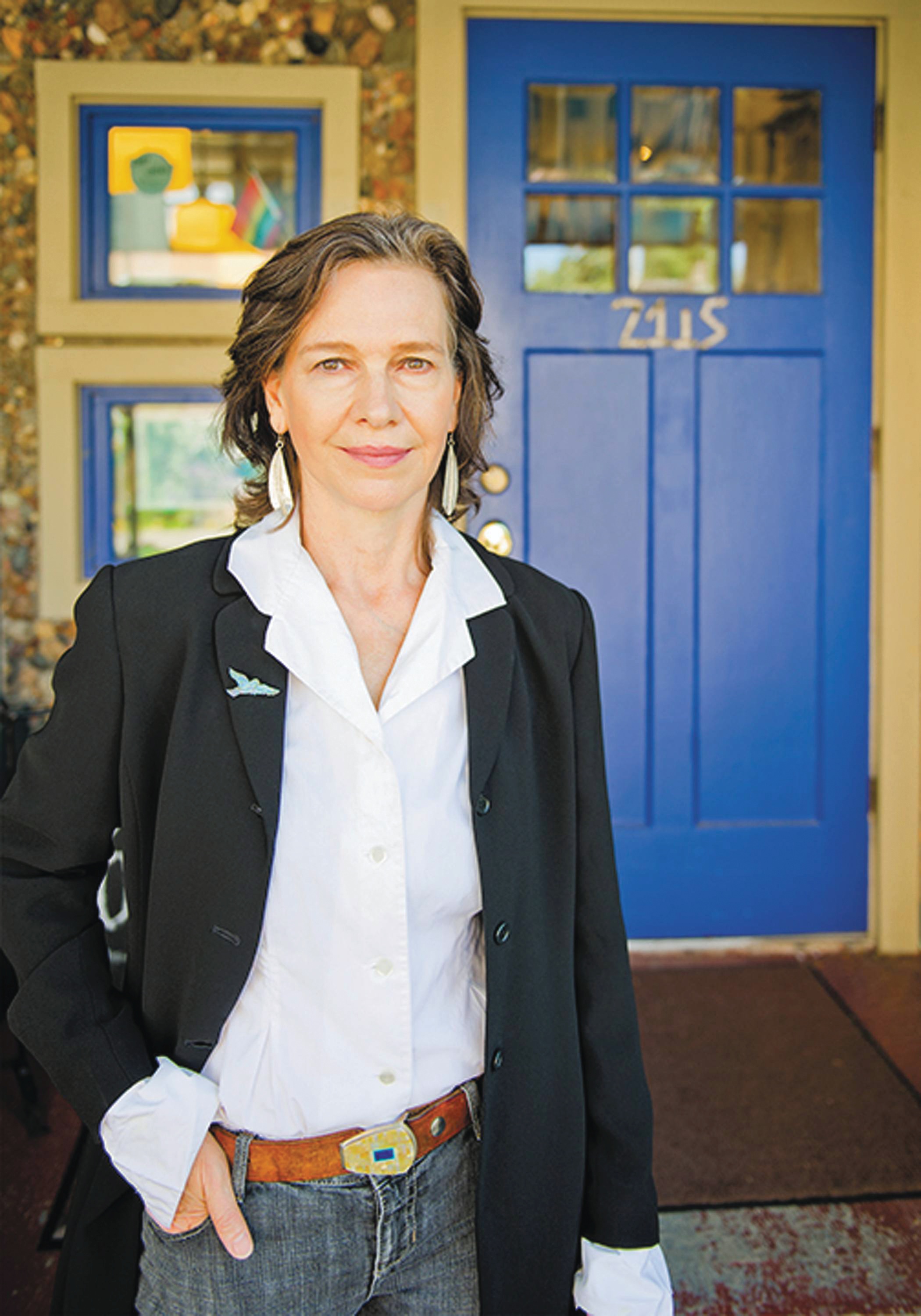 "I wanted to set it in the bookstore because I felt like that's a kind of haunted space, by definition. It's a collection of many consciousnesses enclosed in what Tookie calls this 'collection of words between cardboard covers.' But it's really the contents of a person's consciousness alive or dead. There are many, many thoughts, many dimensions in a bookstore. I thought it was haunted to begin with, and I thought I would really give it an extra haunting by providing a ghost....
"I wanted to set it in the bookstore because I felt like that's a kind of haunted space, by definition. It's a collection of many consciousnesses enclosed in what Tookie calls this 'collection of words between cardboard covers.' But it's really the contents of a person's consciousness alive or dead. There are many, many thoughts, many dimensions in a bookstore. I thought it was haunted to begin with, and I thought I would really give it an extra haunting by providing a ghost....
 Yesterday's hour-long conversation about bookselling and free speech, organized by the eight regional booksellers associations and moderated by Jonathan Friedman, director of education at PEN America, drew nearly 200 viewers. It was, as some participants put it, a respectful, thoughtful discussion of what the organizers called "a complicated issue." That issue is the tension between the book world's traditional support of free expression and the First Amendment, and an interpretation of those principles that aims to limit hate speech and conduct and not support in any way people or organizations who profit from or spread hate speech and conduct.
Yesterday's hour-long conversation about bookselling and free speech, organized by the eight regional booksellers associations and moderated by Jonathan Friedman, director of education at PEN America, drew nearly 200 viewers. It was, as some participants put it, a respectful, thoughtful discussion of what the organizers called "a complicated issue." That issue is the tension between the book world's traditional support of free expression and the First Amendment, and an interpretation of those principles that aims to limit hate speech and conduct and not support in any way people or organizations who profit from or spread hate speech and conduct.
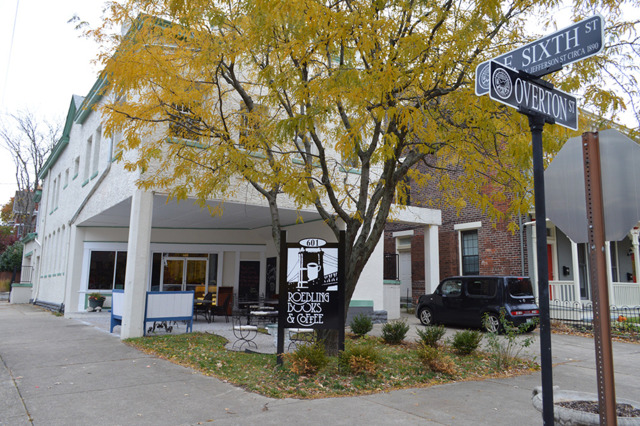
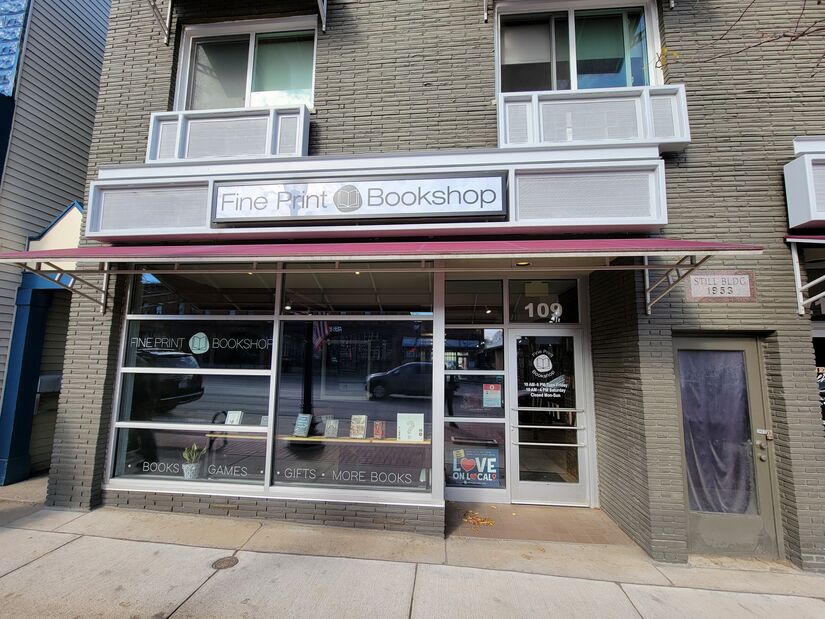
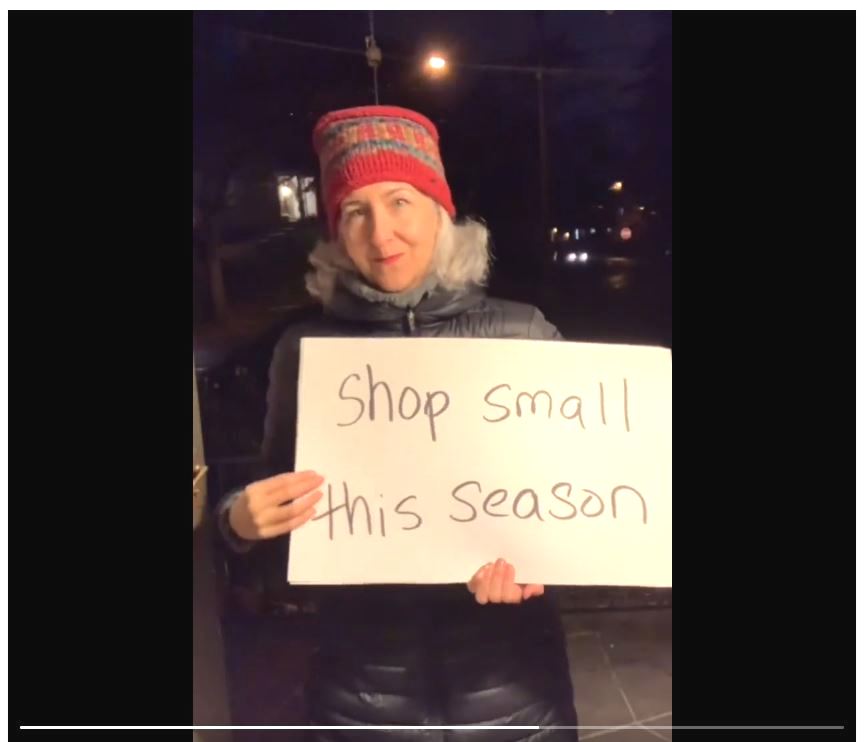
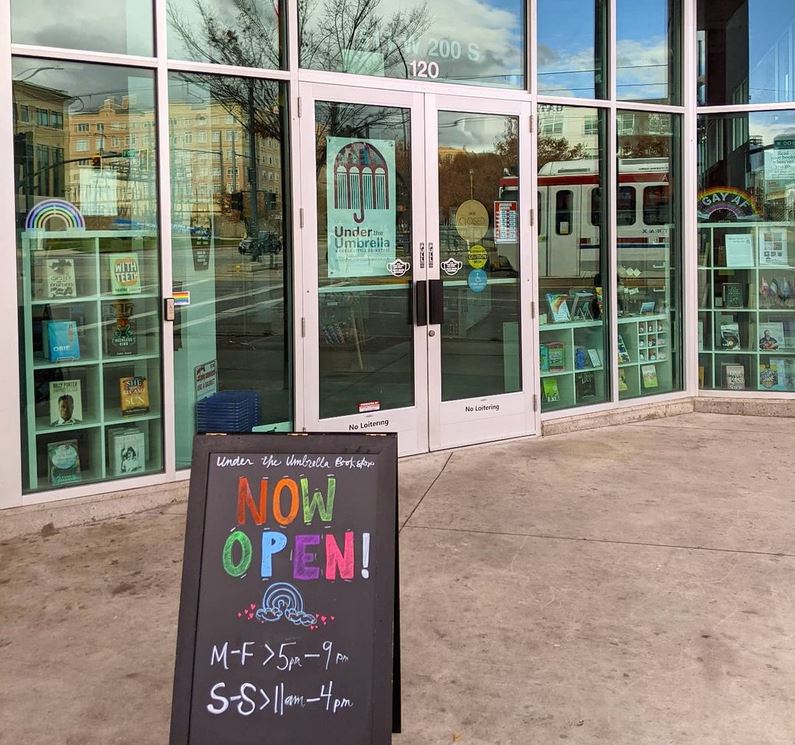 "
"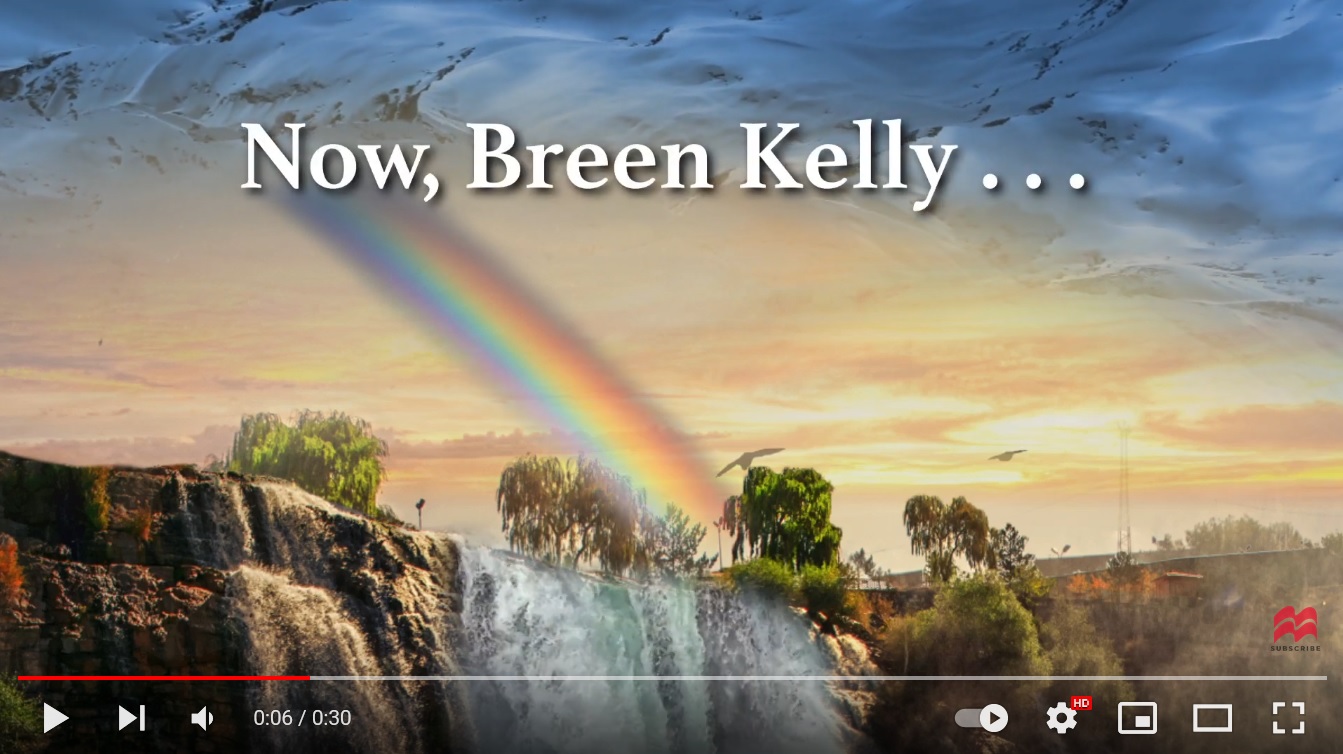 The Becoming: The Dragon Heart Legacy, Book 2
The Becoming: The Dragon Heart Legacy, Book 2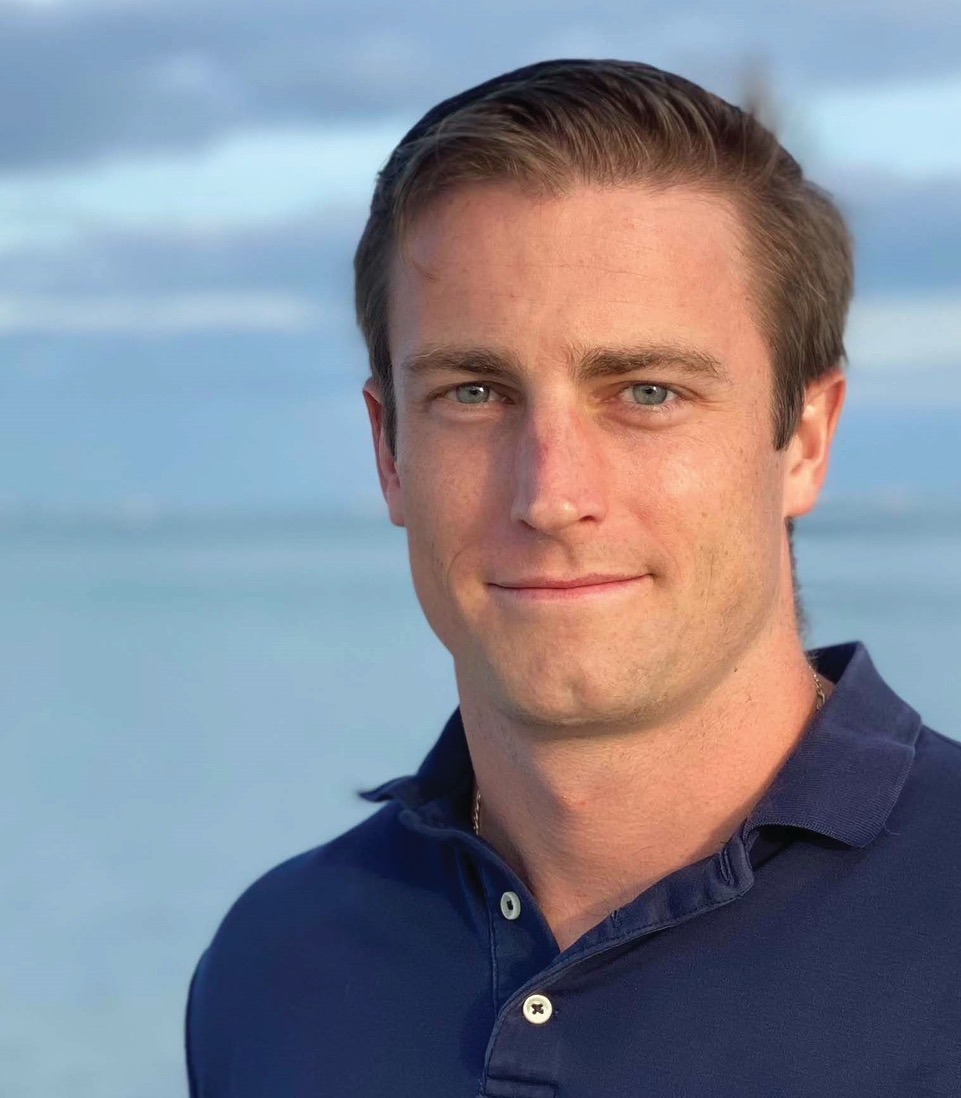
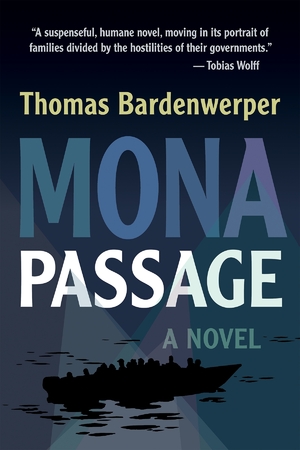 Book you're an evangelist for:
Book you're an evangelist for: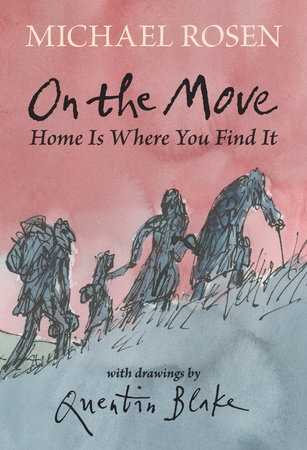 Poet Michael Rosen delves into his moving family history, lending a personal reflection to the contemplative and compelling anthology about migration and refugees, On the Move. Forty-nine of Rosen's poems, evocatively illustrated by Quentin Blake, are arranged in four sections--Family and Friends, The War, The Migrants in Me and On the Move Again--through which Rosen prompts readers to consider the connectedness of one family's experience to the broader movement of people in crisis worldwide.
Poet Michael Rosen delves into his moving family history, lending a personal reflection to the contemplative and compelling anthology about migration and refugees, On the Move. Forty-nine of Rosen's poems, evocatively illustrated by Quentin Blake, are arranged in four sections--Family and Friends, The War, The Migrants in Me and On the Move Again--through which Rosen prompts readers to consider the connectedness of one family's experience to the broader movement of people in crisis worldwide.